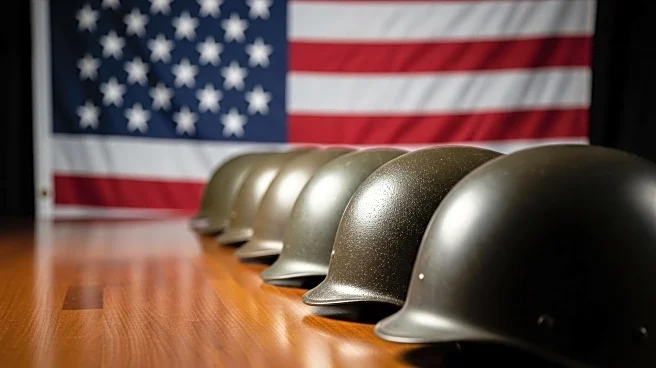What is the story about?
What's Happening?
The Trump administration is expected to extend the deployment of National Guard troops in Washington, D.C. until December 31. This extension is intended to ensure that the troops receive full military benefits, which require a minimum of 30 days of active duty service. The deployment, which began in August, involves troops from the D.C. National Guard and other states, who have been engaged in armed foot patrols and local beautification projects. The presence of the National Guard has reportedly contributed to a 61% drop in crime compared to the same period last year.
Why It's Important?
The extension of the National Guard's deployment in Washington, D.C. highlights the administration's focus on maintaining security in the capital. The decision to extend the deployment for service benefits reflects the administration's commitment to supporting the troops financially. However, the use of military personnel for non-emergency domestic tasks has raised questions about the best use of armed forces and the impact on the troops' civilian lives. The deployment also underscores the broader debate over the militarization of domestic spaces and the role of the military in civilian life.
What's Next?
The extension of the National Guard's deployment in Washington, D.C. may lead to further discussions about the use of military forces in domestic settings. The administration's decision to extend the deployment for service benefits could set a precedent for future deployments. The impact on the morale and well-being of the troops, as well as the financial costs associated with the deployment, will likely be areas of focus in the coming months.
Beyond the Headlines
The deployment raises ethical and practical questions about the use of military personnel for domestic purposes. The involvement of National Guard troops in tasks such as trash collection and groundskeeping has led to criticism and concerns about the appropriate use of military resources. Additionally, the deployment may affect public perception of the military and its relationship with civilian communities.

















